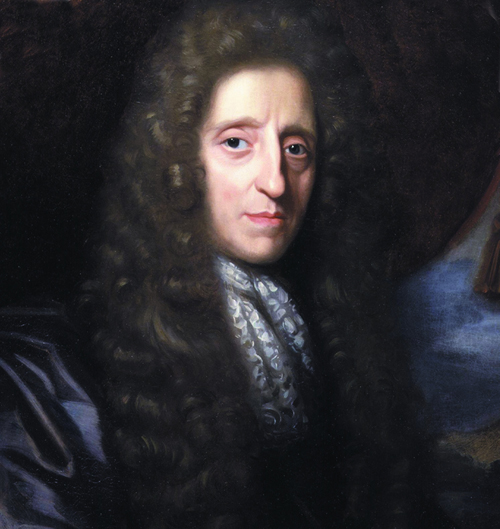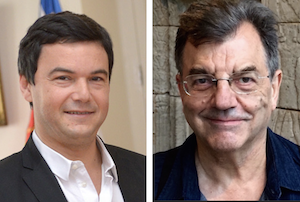John Locke proposes his theory of property rights in The Second Treatise of Government (1690). The theory is rooted in laws of nature that Locke identifies, which permit individuals to appropriate, and exercise control rights over, things in the world, like land and other material resources.
The concept of private property is one of the foundations on which the West orchestrated colonial relations with the New World, justifying the seizure of land and resources in invaded countries.
Who would be the best candidate to talk to Locke about the essence of his proposal and how destructive his ideas were?
Simona Ferlinin proposed Kropotkin, but at the same time, she posted this quote from David Graeber’s article
Against Economics, that was written as a review for the book by Robert Skidelsky’s Money and Government: The Past and Future of Economics.
Maybe Kropotkin?
David said something interesting about Locke in his essay “against economics”, quoting Robert Skidelsky’s Money and Government: The Past and Future of Economics.
Quote from David’s essay:
“To put it bluntly: QTM is obviously wrong. Doubling the amount of gold in a country will have no effect on the price of cheese if you give all the gold to rich people and they just bury it in their yards, or use it to make gold-plated submarines (this is, incidentally, why quantitative easing, the strategy of buying long-term government bonds to put money into circulation, did not work either). What actually matters is spending.
Nonetheless, from Bodin’s time to the present, almost every time there was a major policy debate, the QTM advocates won. In England, the pattern was set in 1696, just after the creation of the Bank of England, with an argument over wartime inflation between Treasury Secretary William Lowndes, Sir Isaac Newton (then warden of the mint), and the philosopher John Locke. Newton had agreed with the Treasury that silver coins had to be officially devalued to prevent a deflationary collapse; Locke took an extreme monetarist position, arguing that the government should be limited to guaranteeing the value of property (including coins) and that tinkering would confuse investors and defraud creditors. Locke won. The result was deflationary collapse. A sharp tightening of the money supply created an abrupt economic contraction that threw hundreds of thousands out of work and created mass penury, riots, and hunger. The government quickly moved to moderate the policy (first by allowing banks to monetize government war debts in the form of bank notes, and eventually by moving off the silver standard entirely), but in its official rhetoric, Locke’s small-government, pro-creditor, hard-money ideology became the grounds of all further political debate.
According to Skidelsky, the pattern was to repeat itself again and again, in 1797, the 1840s, the 1890s, and, ultimately, the late 1970s and early 1980s, with Thatcher and Reagan’s (in each case brief) adoption of monetarism. Always we see the same sequence of events:
- The government adopts hard-money policies as a matter of principle.
- Disaster ensues.
- The government quietly abandons hard-money policies.
- The economy recovers.
- Hard-money philosophy nonetheless becomes, or is reinforced as, simple universal common sense.
How was it possible to justify such a remarkable string of failures? Here a lot of the blame, according to Skidelsky, can be laid at the feet of the Scottish philosopher David Hume. An early advocate of QTM, Hume was also the first to introduce the notion that short-term shocks—such as Locke produced—would create long-term benefits if they had the effect of unleashing the self-regulating powers of the market”
What if we ask Mr Robert Skidelsky to take up the fight with Locke?



